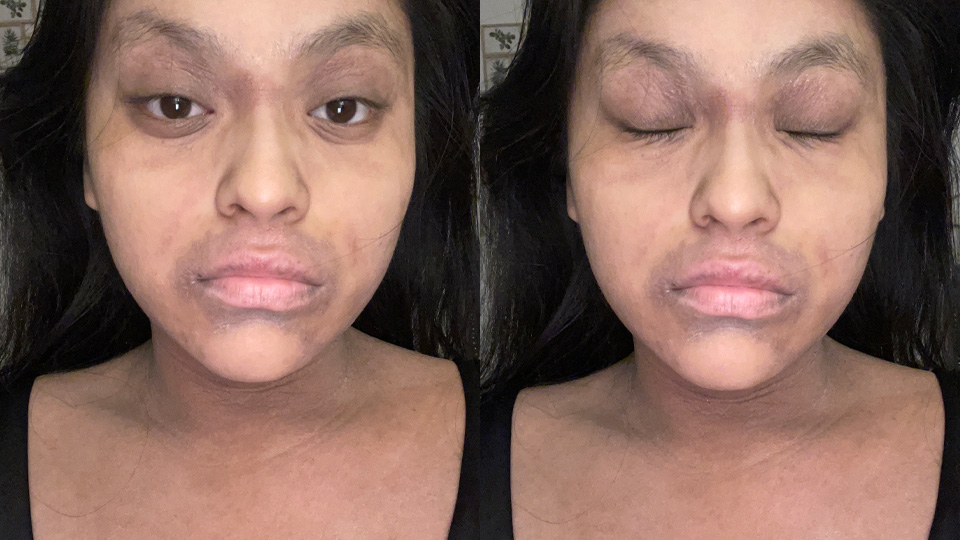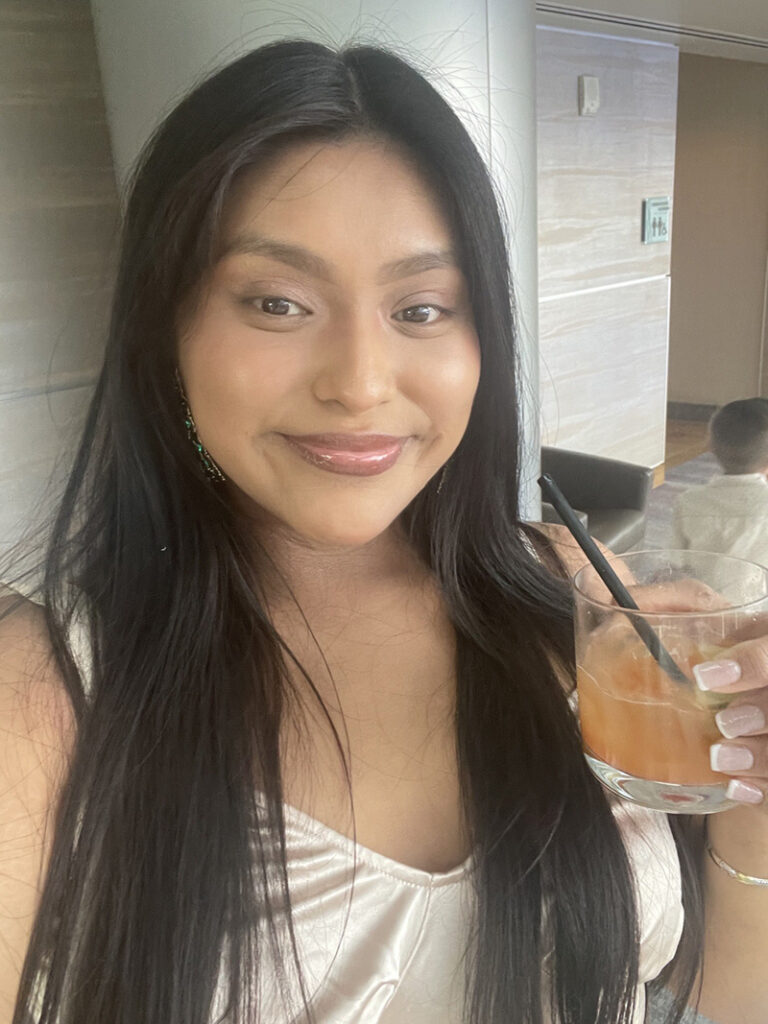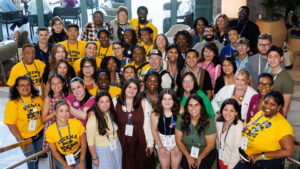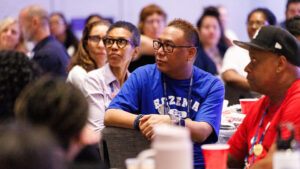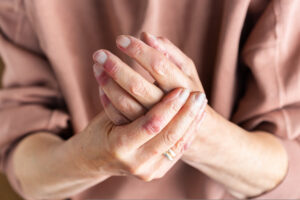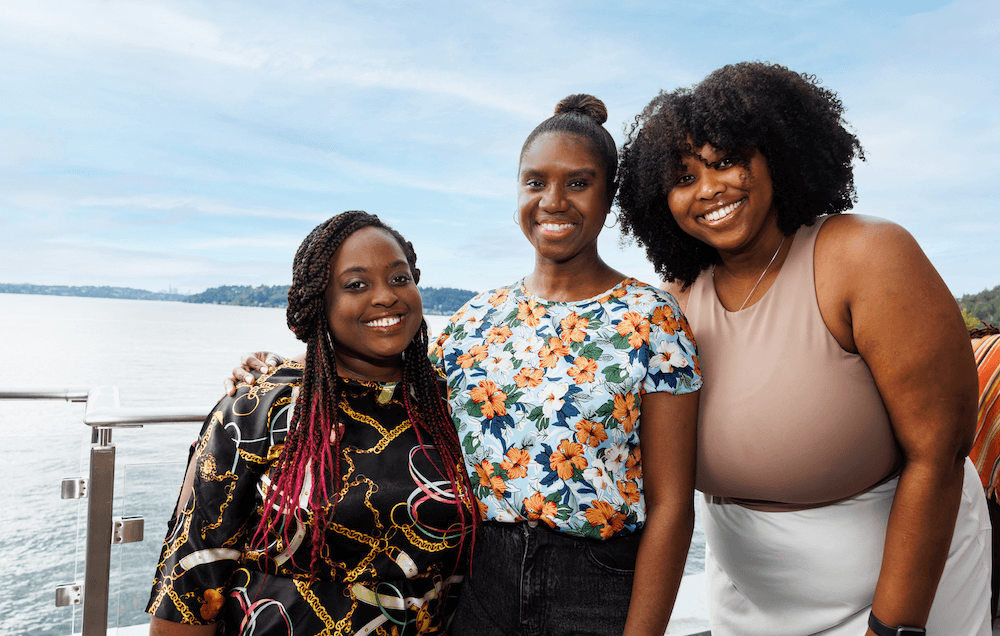Published On: Mar 11, 2025
Last Updated On: Mar 11, 2025
For Dulce Marilyn Morán, 23, a research data associate from New York City, her eczema and her mental health have been closely intertwined for most of her life. Severe flares often made her nervous when out in public, for fear of what others might say or think about her skin.
However, after making the decision to focus more heavily on healing her relationship with eczema — which has included seeking support from others — Morán has experienced a significant improvement in her overall well-being.
Now volunteering as a National Eczema Association (NEA) Ambassador, Morán said she feels more empowered about using her story to inspire others. She is especially interested in spreading awareness and education about eczema within the Hispanic community.
A struggle for an effective treatment
Morán remembers having her first eczema flare when she was 9. She had rashes around her mouth, which she said prompted bullying.
“A classmate picked on me and said I had a mustache,” Morán recalled. “I felt so horrible and thought something was wrong with me.” Her mother took her to a dermatologist who diagnosed her with two types of eczema: atopic dermatitis and allergic contact dermatitis.
Finding solutions to calm the intense itchiness and redness on her hands, neck and eyelids has been an ongoing struggle. Morán said dermatologists prescribed her increasingly stronger doses of topical corticosteroids, but “nothing ever fully helped.”
She quit the topical steroids cold turkey at age 20, but she then suffered from topical steroid withdrawal. “It was traumatic,” she explained. “I looked like a zombie. My skin was a whole open wound.”
Her dermatologist next recommended the biologic drug Dupixent. While it has been shown to improve symptoms for many patients, Dupixent also carries the risk of side effects. One of the most common side effects is conjunctivitis, or pink eye, which severely affected Morán. After a brief trial, she decided Dupixent wasn’t the right fit for her.
She realized her dermatologist wasn’t the right match, either. “I didn’t feel they were compassionate about what I was going through,” Morán said.
A change in tactics
Morán currently uses an at-home red light therapy treatment and natural moisturizers to calm her eczema. She also plans to find a new doctor through NYU Langone Health, where she now works.
“I want to see a provider I can relate to,” she said. “I think seeing a dermatologist who is Hispanic, who understands how eczema looks on different skin tones, will be helpful for me in regaining trust with doctors.”
Morán also realized her healing needed to go further than skin deep. She says therapy and meditation has helped build her self-confidence, reduce her anxiety and make her more willing to socialize with others.
“My therapist has really ingrained in my head that the only person stopping me from doing what I want is me,” she explained. “I’ve been doing things I never had the courage to do before, like going to the gym or a concert.”
Connecting with the broader eczema community has also made Morán feel less isolated. She described attending NEA’s Eczema Expo as “one of the best experiences” she’s ever had and that she made lasting friendships with people across the country. “Finding the people who understand what you’re going through can make you feel less lonely,” she added.
Paying it forward
The next step in Morán’s journey involves outreach to others with eczema in the Hispanic community. She explained that she wants to help educate and inform others about eczema and how to treat it, while also emphasizing the importance of addressing mental health.
“I’m of Mexican descent, and my family has this old-school mindset called ‘ponte las pilas,’ which means ‘put your batteries on.’ The idea is to just pick yourself up,” Morán explained. “But sometimes, I just need a hug. Sometimes, I need to sit with my emotions for a minute before I move on, and that’s OK.”
She continued, “I know there are probably many people out there with eczema and they don’t have that sense of community or support. As a NEA Ambassador, I want to bring that awareness to others.”
Dulce Marilyn Morán is a NEA Ambassador. If you’re an adult living with eczema or a caregiver of someone with eczema, join NEA Ambassadors to make a difference for the eczema community.
Share your eczema story
Sharing personal experiences is one of our most powerful tools for healing and making connections. If you have an eczema story to share with the community, we’d love to hear it. Share here.
